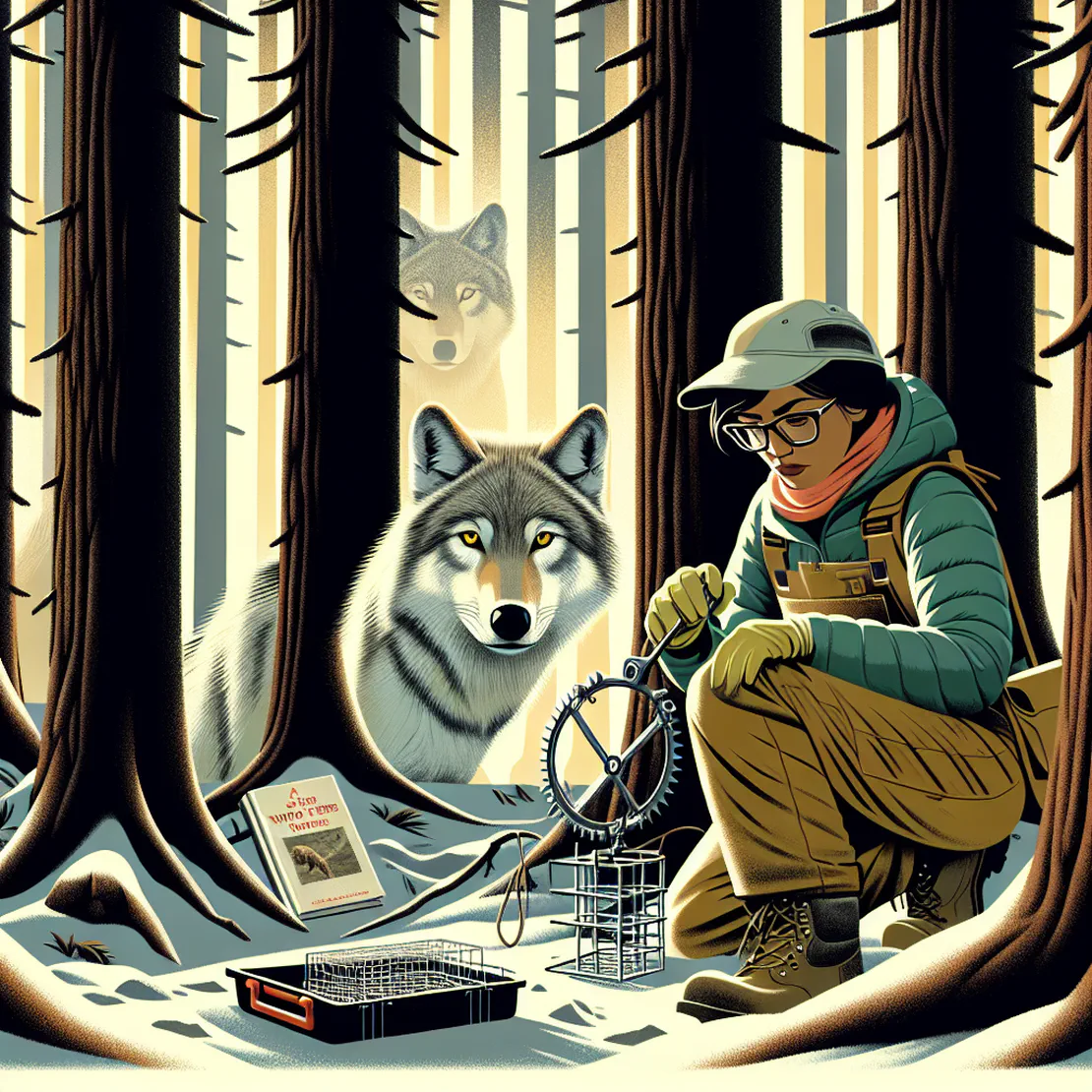
#2213 - Diane K. Boyd
- The Joe Rogan Experience
- Wolves
- October 15, 2024
Table of Contents
At a Glance
-
Opening Discussion on Wolves - ‘I have to have you on because he knows how fascinated I am by wolves.’ This sets the stage for the episode’s primary theme around wolves, establishing the guest’s expertise and Joe’s interest in the topic.
-
Memoir Introduction - ‘That’s the opening for my book. That’s a page turner.’ Highlights the guest’s book and teases its intriguing content, capturing the listener’s interest.
-
Impact of Wolves on Ecosystems - ‘how wolves changed rivers in Yellowstone’ The guest critiques oversimplified narratives about wolves’ ecological impact, sparking a deeper discussion on environmental science.
-
Human-Wildlife Conflict - ’that horrific act got a lot of people in the middle fired up to become more strong conservationists.’ A serious note on how extreme events can raise awareness and influence conservation efforts.
-
Historical Misconceptions of Wolves - ‘And I think it goes back to like the Little Red Riding Hood and, you know, the Big Bad Wolf’ The guest discusses cultural influences on the perception of wolves, which is pivotal in understanding human-predator relationships.
-
Discussion on Technology in Remote Areas - ‘So I have Starlink available to me at my cabin, but only when I choose to turn it on.’ Illustrates the blend of modern technology and traditional living, showing how remote lifestyles are evolving.
-
Wildlife Management Insights - ‘They forced cows to eat cows. Surprise! You dumbass.’ A humorous yet critical take on mismanagement in wildlife practices, emphasizing the consequences of human intervention in natural processes.
-
Socio-ecological Commentary - ‘It might be that it makes you more aggressive, it makes you more interested in taking risks’ Discusses the intriguing link between toxoplasmosis and behavioral changes in humans and animals, tying back to broader themes of health and behavior.
What to Do
-
‘Persist in pursuing your interests’ - Persistence in following what fascinates you, as demonstrated by the speaker who kept engaging with a wolf expert despite initial setbacks, can lead to fulfilling opportunities and careers.
-
‘Engage with your environment’ - Being acutely aware and connected with one’s surroundings can enhance understanding and interaction, which is particularly noted in discussions about animal behavior and environmental adaptation.
-
‘Consider alternative forms of communication and learning’ - The discussion on morphic resonance highlights the idea that there are possibly unknown or underappreciated methods of communication and learning in nature that could inform better practices in human contexts.
-
‘Take time to adapt to new environments’ - Allowing oneself time to adjust to new or different settings, as when visiting a cabin or transitioning into nature, can improve mental well-being and the overall experience.
-
‘Value real experiences over theoretical knowledge’ - Practical engagement with environments, such as living in the wilderness, provides insights and personal growth that theoretical knowledge alone cannot offer.
What to Get
Summary
This podcast episode features a fascinating conversation centered around wildlife, specifically focusing on wolves and their behaviors, interactions, and the challenges they face in various environments. The guest, a wildlife expert with a deep passion for wolves, shares insights from their experiences and studies, which makes for an engaging and educational listen.
One of the intriguing highlights of the episode is the discussion about a book titled “A Woman Among Wolves.” The guest, who is the author, delves into the content of their memoir, which features vivid accounts of life in Glacier National Park, interactions with wolves, and the complexities of wildlife conservation. The guest also touches on the challenges faced during the publication process, including the decision not to narrate the audiobook and the intricacies of managing media rights.
Throughout the episode, the conversation shifts between various interesting topics, including the behavior of wolves in natural versus urban settings. The guest describes how wolves adapt to different environments, recounting an instance where wolves settled in a gated community, which highlighted their adaptability but also the challenges they face when they leave such protected areas.
Additionally, the podcast covers broader topics related to wildlife conservation, such as the impact of human activities on animal habitats and the critical role of scientific research in fostering coexistence between humans and wildlife. The guest emphasizes the importance of understanding and respecting the intricate balance of ecosystems, which is vital for the survival of species like wolves.
Overall, the episode is packed with compelling stories and valuable lessons on wildlife, conservation efforts, and the deep bond between humans and the natural world. It’s an enlightening discussion that not only raises awareness about the plight of wolves but also inspires a greater appreciation for the intricacies of wildlife conservation.


